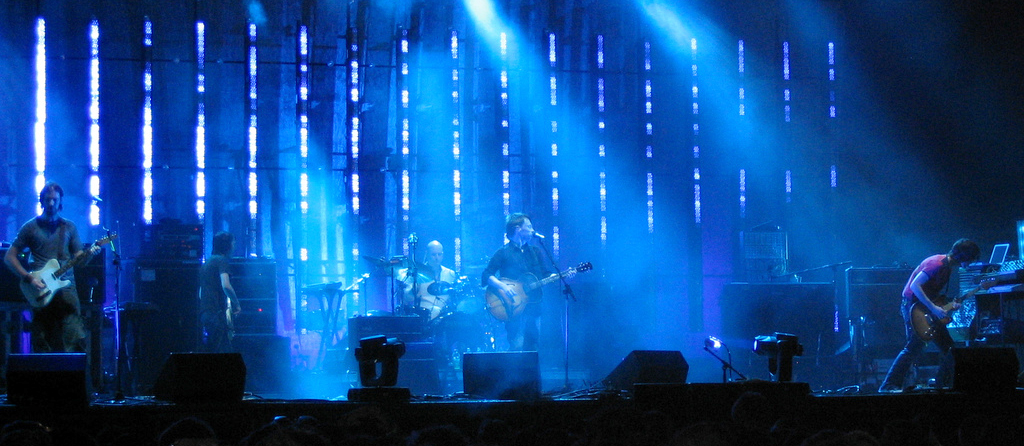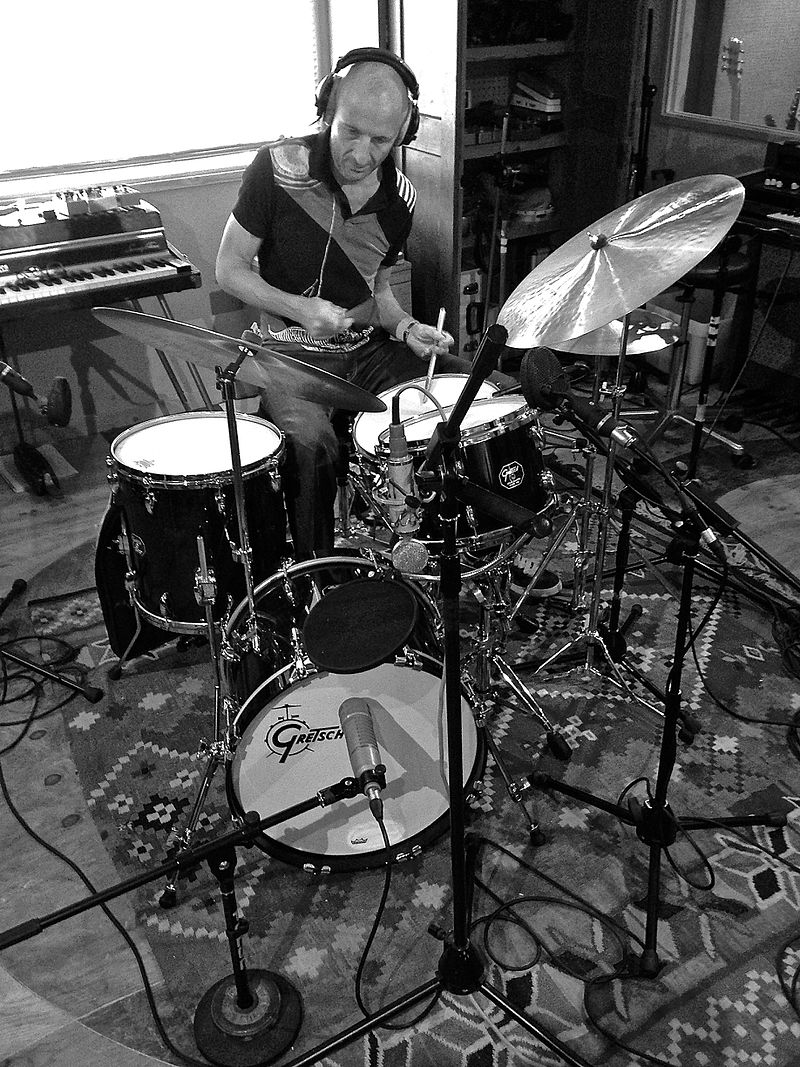Exploring the Innovative Landscape of Radiohead's Alternative Rock
Introduction
Radiohead, an English rock band that originated in Abingdon, Oxfordshire, in 1985, consists of members Thom Yorke (vocals, guitar, piano, keyboards), Jonny Greenwood (guitar, keyboards, other instruments), Colin Greenwood (bass), Ed O'Brien (guitar, backing vocals), and Philip Selway (drums, percussion). Collaborating with producer Nigel Godrich and cover artist Stanley Donwood since 1994, Radiohead is recognized for its innovative approach that has significantly influenced the landscape of alternative rock.

The band inked a deal with EMI in 1991, unleashing their debut album, "Pablo Honey," in 1993. The global success of their inaugural single, "Creep," propelled them to greater heights, and their reputation soared with the release of "The Bends" in 1995. "OK Computer" (1997), their third album, earned widespread acclaim as a groundbreaking record in popular music, featuring intricate production and themes of contemporary alienation.

Taking a bold stylistic turn, Radiohead's fourth album, "Kid A" (2000), incorporated elements from electronic, jazz, classical, and krautrock genres. Despite dividing opinions initially, it later garnered recognition as the best album of the decade by various outlets. "Amnesiac" (2001), recorded during the same sessions, followed, and "Hail to the Thief" (2003), addressing the war on terror, blended the band's rock and electronic facets, serving as their final album with EMI.

In a groundbreaking move, Radiohead independently released their seventh album, "In Rainbows" (2007), allowing customers to set their own price for the download. This approach achieved both critical acclaim and chart success. Their eighth album, "The King of Limbs" (2011), explored rhythm through extensive looping and sampling. "A Moon Shaped Pool" (2016) prominently featured Jonny Greenwood's orchestral arrangements. Yorke, Jonny Greenwood, Selway, and O'Brien have also pursued solo projects. In 2021, Yorke and Jonny Greenwood introduced a new band, "The Smile."
By 2011, Radiohead had sold over 30 million albums globally. Their accolades include six Grammy Awards, four Ivor Novello Awards, and five Mercury Prize nominations, the highest for any act. Seven of their singles, including "Creep," "Paranoid Android," and "Karma Police," reached the top 10 on the UK Singles Chart. Rolling Stone recognized Radiohead as one of the 100 greatest artists of all time, with readers voting them the second-best artist of the 2000s. Five of their albums feature in Rolling Stone's "The 500 Greatest Albums of All Time" lists, and they were inducted into the Rock and Roll Hall of Fame in 2019.
Musical Style
Radiohead's musical style has been characterized by a diverse range of genres, including art rock, alternative rock, electronica, experimental rock, progressive rock, Britpop, grunge, art pop, and electronic rock. Jonny Greenwood has emphasized the band's pursuit of a middle ground between experimental influences and straightforward rock music, driven by a desire to avoid repetition rather than simply being labeled as "experimental." Drummer Clive Deamer, associated with Radiohead since 2011, likens their approach to jazz, deliberately steering clear of clichés and embracing a mentality akin to jazz musicians. The songwriting process typically begins with a sketch by Thom Yorke, harmonically developed by Jonny Greenwood before the rest of the band contributes to the arrangement. While Yorke does not read sheet music, Greenwood is trained in music theory. The interplay between their distinct approaches has been described as one of the most adventurous in rock history. Yorke serves as the director, but all members play a role in the arrangement.
The songwriting process typically begins with a sketch by Thom Yorke, harmonically developed by Jonny Greenwood before the rest of the band contributes to the arrangement. While Yorke does not read sheet music, Greenwood is trained in music theory. The interplay between their distinct approaches has been described as one of the most adventurous in rock history. Yorke serves as the director, but all members play a role in the arrangement.
Over the years, Radiohead has experimented with various approaches to songwriting, often refining and developing songs over extended periods. For instance, the track "True Love Waits" was first performed in 1995 before being released in a different arrangement on "A Moon Shaped Pool" in 2016. Radiohead views themselves as an arrangement to shape songs using diverse technologies, whether it be a cello or a laptop, highlighting their flexibility.
The transition during the "Kid A" and "Amnesiac" sessions marked a significant change in Radiohead's music and working methods. Departing from conventional rock instrumentation, the members gained flexibility, frequently switching instruments. Influences on their music range from 1960s and 1970s jazz artists like Miles Davis and Charles Mingus to Queen, Bob Dylan, Pink Floyd, Elvis Costello, and post-punk acts such as Joy Division. Radiohead's exploration of electronic music in "Kid A" and "Amnesiac" drew inspiration from Yorke's admiration for Warp Records artists, particularly Aphex Twin. Other influences include 1970s krautrock bands like Can and Neu!, 20th-century classical music composers Krzysztof Penderecki and Olivier Messiaen, and the electronic instrument ondes Martenot, popularized by Messiaen.
Radiohead's exploration of electronic music in "Kid A" and "Amnesiac" drew inspiration from Yorke's admiration for Warp Records artists, particularly Aphex Twin. Other influences include 1970s krautrock bands like Can and Neu!, 20th-century classical music composers Krzysztof Penderecki and Olivier Messiaen, and the electronic instrument ondes Martenot, popularized by Messiaen.
Thom Yorke, Radiohead's lyricist, has evolved his lyrical approach over the years. While his early lyrics were personal, he later experimented with cutting up words and phrases, assembling them at random. Yorke's lyrics often convey political and environmental concerns and are motivated by a response to doublethink. His use of common expressions and clichés has been described as "Radioheadisms," contributing to a lyrical style that challenges everyday discourse and explores the vapidity of language. The themes in Yorke's lyrics have ranged from expressions of anger and political concerns to conveying wonder and amazement, as seen in the album "A Moon Shaped Pool." Yorke refutes the characterization of Radiohead's music as "depressing," emphasizing a rejection of negativity and an intent to create meaningful, thought-provoking art.
https://www.youtube.com/watch?v=if05nLsUHyk&ab_channel=mks2005
































